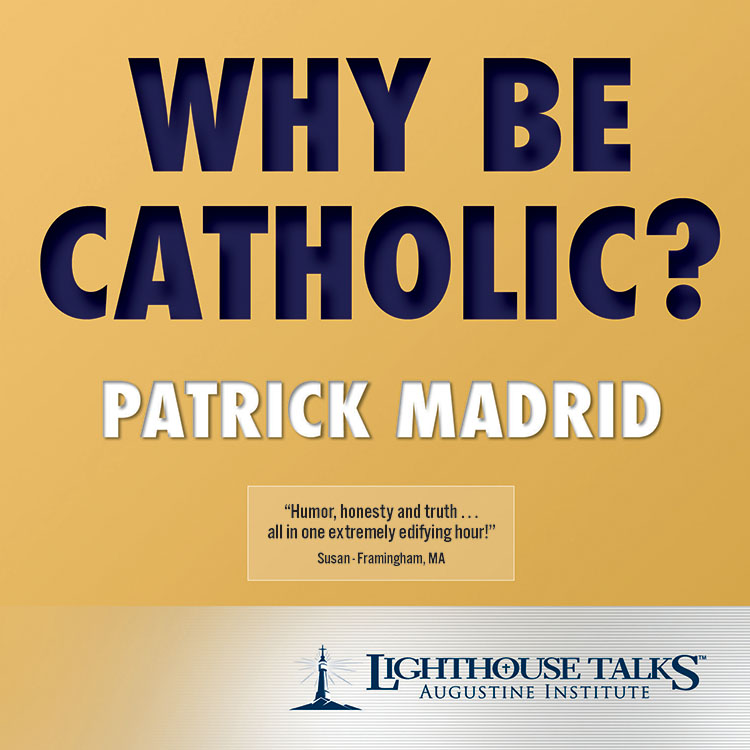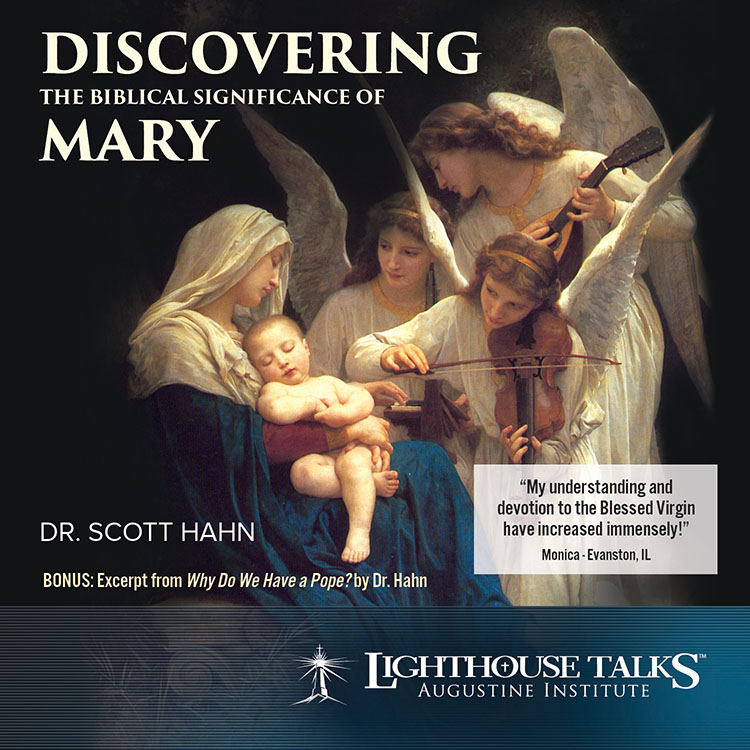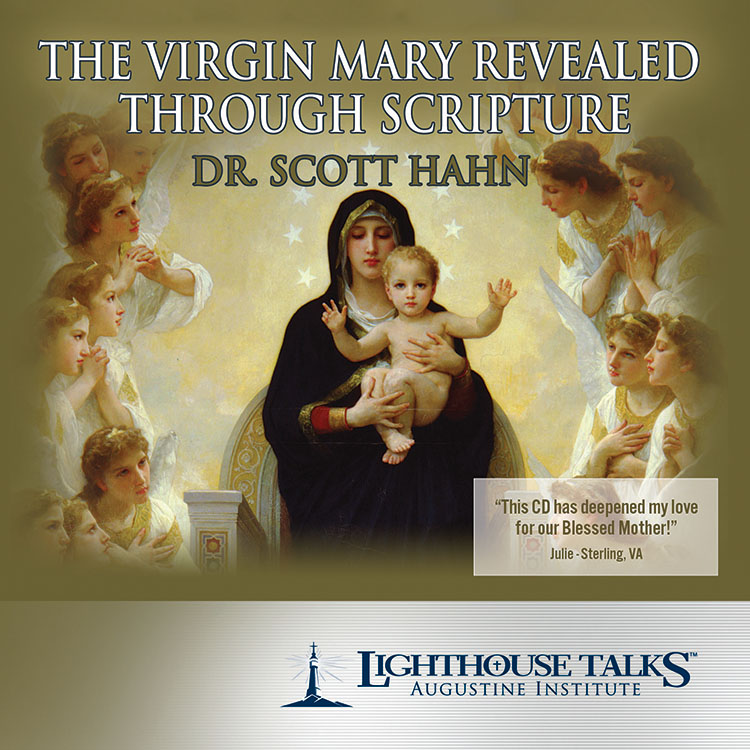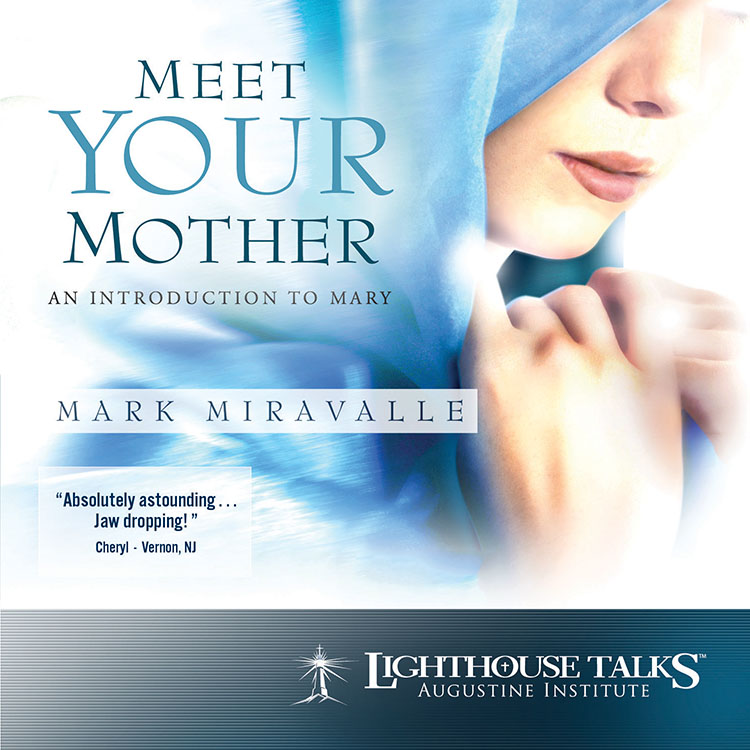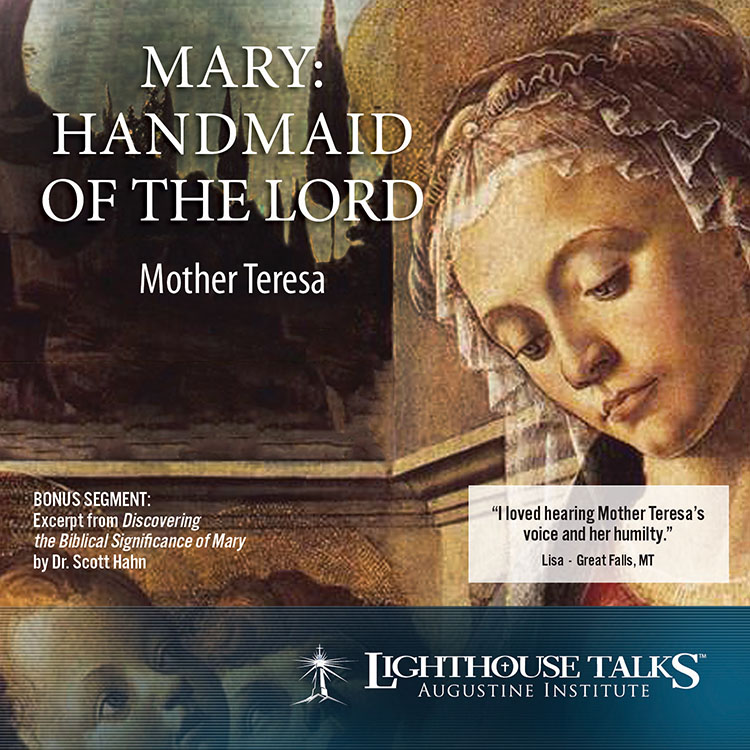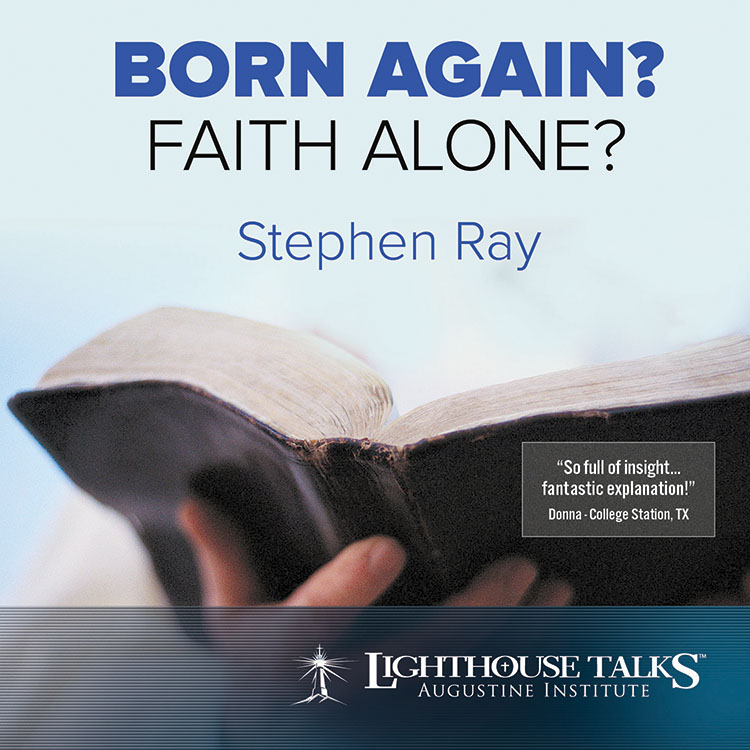The Protestant object that we should not pray for the dead. They claim that those dead who are in heaven, don't need it. And those dead who are in hell, don't want it. And they deny the existence of Purgatory.
How do we respond? Have you ever thought about why you pray for your beloved dead?
The most beautiful response I've ever heard is from C.S. Lewis, he said:
Of course I pray for the dead. The action is so spontaneous, so all but inevitable, that only the most compulsive theological case against it would deter me. And I hardly know how the rest of my prayers would survive if those for the dead were forbidden. At our age the majority of those we love best are dead. What sort of intercourse with God could I have if what I love best were unmentionable to Him? . . .(Mere Christianity).
And I think, that should suffice. We pray for our beloved dead, because we love them.
But Protestants want more than that. They don't, generally, accept the Spiritual groanings of God:
Romans 8:26King James Version (KJV)
26 Likewise the Spirit also helpeth our infirmities: for we know not what we should pray for as we ought: but the Spirit itself maketh intercession for us with groanings which cannot be uttered.
They live by the letter and not by the spirit:
14 But the natural man receiveth not the things of the Spirit of God: for they are foolishness unto him: neither can he know them, because they are spiritually discerned.
So, they claim that God has never permitted the living to intercede for the dead. And they have taken great pains to remove any vestige of such an idea from the Bible. The one book which has an explicit statement on the matter was removed because of that teaching. Luther said:
"I am so great an enemy to the second book of the Maccabees, and to Esther, that I wish they had not come to us at all, for they have too many heathen unnaturalities."
41 Then they all blessed the just judgment of the Lord, who had discovered the things that were hidden.
42 And so betaking themselves to prayers, they besought him, that the sin which had been committed might be forgotten. But the most valiant Judas exhorted the people to keep themselves from sin, forasmuch as they saw before their eyes what had happened, because of the sins of those that were slain.
43 And making a gathering, he sent twelve thousand drachms of silver to Jerusalem for sacrifice to be offered for the sins of the dead, thinking well and religiously concerning the resurrection,
44 (For if he had not hoped that they that were slain should rise again, it would have seemed superfluous and vain to pray for the dead,)
45 And because he considered that they who had fallen asleep with godliness, had great grace laid up for them.
46 It is therefore a holy and wholesome thought to pray for the dead, that they may be loosed from sins.
Notice several Catholic doctrines here confirmed.
1. Prayer for the dead. The Jews who survived immediately began to pray that the sin of those dead might be forgotten. "Forgotten by whom?" you might ask. By God, of course. Forgotten meaning forgiven.
But for the valiant Judas Maccabaeus, this wasn't enough. He also ordered a monetary offering, a sacrifice of 12 thousand drachmas, to sent to Jerusalem in the name of the fallen. What do Protestants say to that? "BLASPHEMY! We can't buy our way into heaven! You can't buy anyone's way into heaven!"
But what does Jesus say?
21 Jesus said unto him, If thou wilt be perfect, go and sell that thou hast, and give to the poor, and thou shalt have treasure in heaven: and come and follow me.
What? Did Jesus just counsel someone to buy his way into heaven? Of course not! But giving of your wealth for the good of the people of God is a good deed, a sacrifice, a form of prayer, which God takes into account for your soul and for those whom you love.
Notice how this falls perfectly in line with the Maccabean verse.
45 And because he considered that they who had fallen asleep with godliness, had great grace laid up for them.
Because of the treasure which they offered in the name of the fallen, the fallen had treasure laid up for them. This is the reason why the Protestants had this book taken from the Bible.
Aside: There's a whole 'nother argument where Protestants claim that Luther kept the book in a separate section. They will try to side step the issue that he did not regard it the Word of God. Essentially, if not literally, removing the book from the Bible because the Bible is the Word of God, isn't it? Anyway, back to our proof for prayer for the dead….
So, what other Catholic Doctrines are here confirmed? We just mentioned "prayer for the dead" above.
2. We also mentioned the Treasury of merit and we confirmed it in the New Testament. Here's another confirmation for the Treasury of merit:
Mark 12King James Version (KJV)
43 And he called unto him his disciples, and saith unto them, Verily I say unto you, That this poor widow hath cast more in, than all they which have cast into the treasury: 44 For all they did cast in of their abundance; but she of her want did cast in all that she had, even all her living.
In a very real sense, the poor widow was giving her life for those whom she loved. And her sacrifice was stored in the treasury in heaven. That isn't explicit, but where else would it be stored?
3. Indulgences. The Treasury of merit is key to understanding the Doctrine of indulgences because indulgences, the idea that the merits of the Saints can be offered for the souls of those in Purgatory or anyone whom we love. This rests upon the idea that the graces of the saints are stored up for us in heaven.
Many, unfortunately, limit the idea of "merits of the Saints" to Jesus and the canonized Saints. But that isn't true. The Church teaches that all the baptized are saints. Our merits are also stored in that same treasury. Otherwise, it would not make sense for us to "sell all we have and give to the poor and we will have treasure in heaven."
Where does 12 Macc mention indulgences? Here:
And because he considered that they who had fallen asleep with godliness, had great grace laid up for them.
4. And the entire idea of praying for the dead stands firmly upon the Doctrine that the dead will rise to eternal life.
44 (For if he had not hoped that they that were slain should rise again, it would have seemed superfluous and vain to pray for the dead,)
Well, that's a great explanation for Catholics. We believe in praying for the dead. And we accept 2 Macc and all the Deuterocanonicals as the Word of God. But Protestants have set these books aside, if they have not cast them out altogether and do not believe them to be the Word of God.
Its difficult and complicated to address this question. Its very easy for Protestant to flick their wrist and deny the truth. All they have to do is dismiss it. In this regard, they remind me very much of atheists. It is easy to deny anything. All they have to say is, "I don't believe it."
But we are called to proclaim the truth, and that is more difficult. CS Lewis said it this way:
It is no good asking for a simple religion. After all, real things aren’t simple. They look simple,but they’re not. The table I’m sitting at looks simple: but ask a scientist to tell you what it’s really made of—all about the atoms and how the light waves rebound from them and hit my eye and what they do to the optic nerve and what it does to my brain—and, of course, you will find what we call “seeing a table” lands you in mysteries and complications which you can hardly get to the end of. …
Reality, in fact, is always something you couldn’t have guessed. That’s one of the reasons I believe Christianity. It’s a religion you couldn’t have guessed. If it offered us just the kind of universe we’d always expected, I’d feel we were making it up. But, in fact, it’s not the sort of thing anyone would have made up. It has just that queer twist about it that real things have. So let’s leave behind all these boys’ philosophies—these over-simple answers. (Mere Christianity).
So here we go.
First, prayer for the dead and prayer to the Saints are related Doctrines. They both fall under the Communion of Saints. But they are not identical.
Prayer to the Saints rests upon the idea, that all who die in Christ are alive in Christ.
John 11:25King James Version (KJV)
25 Jesus said unto her, I am the resurrection, and the life: he that believeth in me, though he were dead, yet shall he live:
Therefore, we are permitted to pray for their intercession in our behalf because they are, in a certain sense, more alive than we, since they are closer to the source of life.
Prayer for the dead rests upon the Doctrine of Purgatory. The idea that the dead do not all go directly to heaven or to hell, but some go to an intermediate place of purification.
In the second place, prayer for the dead also hinges upon the idea that even if Purgatory does exist, as we believe it does, that our prayers would be of any benefit to them.
And, of course, we have to prove this from the 66 book Protestant Bible, because they generally accept no other proof.
The Existence of Purgatory
First of all, it seems rather strange to me that they would object to such a pure expression of the mercy of God. In Purgatory, it is God, the All Consuming Fire, which purifies us of our sins. We do nothing except yearn to be purified that we may admitted to His Presence.
God, could, of course, leave us to our sins and let us be condemned. But then, the majority of human beings would be condemned.
This is what Scripture says:
LIGHTHOUSE CATHOLIC MEDIA
BEST CD'S
 |
| TOP TWENTY TALKS IN ONE BUNDLE |
Matthew 7:13-14
King James Version (KJV)
13Enter ye in at the strait gate: for wide is the gate, and broad is the way, that leadeth to destruction, and many there be which go in thereat:
14Because strait is the gate, and narrow is the way, which leadeth unto life, and few there be that find it.
Does that mean, do you think, that God will destroy most of the world? After all, most of us die with sins on our souls, do we not?
But Scripture also says:
1 John 5:17All unrighteousness is sin: and there is a sin not unto death.
So, then we can be comforted that not all sin is mortal.
How is it then, that anyone with any kind of sin can enter heaven? They can't:
Revelation 21:27And there shall in no wise enter into it any thing that defileth, neither whatsoever worketh abomination, or maketh a lie: but they which are written in the Lamb's book of life.
Therefore, in order to enter into heaven, one must be purged of sin. Scripture says so:
1 Corinthians 3:15
King James Version (KJV)
15If any man's work shall be burned, he shall suffer loss: but he himself shall be saved; yet so as by fire.
Saved by fire? What? How is it that the righteous are burned?
Revelation 2:10Fear none of those things which thou shalt suffer: behold, the devil shall cast some of you into prison, that ye may be tried; and ye shall have tribulation ten days: be thou faithful unto death, and I will give thee a crown of life.
Yeah, before we enter heaven, those of us who have incurred the temporal punishments for sin, we must be purified. Whether we do this in heaven or here on earth, that is our decision to make:
Luke 11:41But rather give alms of such things as ye have; and, behold, all things are clean unto you.
But that doesn't answer the question, "Does Purgatory exist?" As much as the question of, "Why do you believe that Purgatory exits? What is the reason for Purgatory?"
Scripture, however, points to a place of suffering which we call Purgatory. I say, "suffering" because it isn't spelled out that this place is for purification. The closest we come to that idea is:
10 According to the grace of God which is given unto me, as a wise masterbuilder, I have laid the foundation, and another buildeth thereon. But let every man take heed how he buildeth thereupon. 11 For other foundation can no man lay than that is laid, which is Jesus Christ. 12 Now if any man build upon this foundation gold, silver, precious stones, wood, hay, stubble; 13 Every man's work shall be made manifest: for the day shall declare it, because it shall be revealed by fire; and the fire shall try every man's work of what sort it is. 14 If any man's work abide which he hath built thereupon, he shall receive a reward. 15 If any man's work shall be burned,he shall suffer loss: but he himself shall be saved; yet so as by fire.
Protestants will deny this is Purgatory because they don't see the word, "purgatory". All I can do is continue with my logical proof.
This is the place where those who die in an imperfect state of grace are purified by suffering. Scripture says:
1 Peter 4:1King James Version (KJV)
Forasmuch then as Christ hath suffered for us in the flesh, arm yourselves likewise with the same mind: for he that hath suffered in the flesh hath ceased from sin;
And, in several places, Scripture reveals the existence of a spiritual prison where good men go to suffer at the hands of Satan:
Revelation 2:10
King James Version (KJV)
10 Fear none of those things which thou shalt suffer: behold, the devil shall cast some of you into prison, that ye may be tried; and ye shall have tribulation ten days: be thou faithful unto death, and I will give thee a crown of life.
What is this prison?
5 But the rest of the dead lived not again until the thousand years were finished. This is the first resurrection.
Where did the rest of the dead go for a thousand years before they lived again?
19 By which also he went and preached unto the spirits in prison;
Where were these spirits to which Jesus preached?
Protestants have no answer except to deny that it is Purgatory. We can g on providing proofs of the existence of Purgatory til we're blue in the face, but Protestants will simply deny them because they don't say, "p-u-r-g-a-t-o-r-y". Here's what I said to one of them regarding this attitude:
In this discussion over whether Purgatory is in Scripture, you seem to require an explicit text. Yet, when asked to provide an explicit text for Sola Scriptura, you and others on this blog, denied that explicit texts were necessary to prove doctrine. Is there an explanation for this seeming discrepancy?
The question was erased, no answer was provided.
So, I think I've provided a good case for the existence of Purgatory. Catholics will probably agree. Most Protestants will probably not agree. But maybe, some will ask,
Even if Purgatory does exist,
what makes you think your prayers
would be of any benefit to them?
The short answer, Infant Baptism.
The Catholic Church teaches that because of the faith of the parents, their children will receive the promised Holy Spirit when they are baptized.
What? How is this related to prayer for the dead?
Good question. Before we are baptized, the Church teaches that we do not have sanctifying grace in our souls. It is sanctifying grace which gives our souls the life of Christ. When we are baptized, we share in the eternal life of Christ.
1277 Baptism is birth into the new life in Christ. In accordance with the Lord's will, it is necessary for salvation, as is the Church herself, which we enter by Baptism.
Therefore, I believe we can say that the dead are brought to life. And when we pray for the dead, we are praying for them to be brought to eternal life, are we not?
Ok, but infants aren't dead.
True. But in the Sacraments, we encounter Jesus the same way that the Canaanite woman encountered Him:
22 And, behold, a woman of Canaan came out of the same coasts, and cried unto him, saying, Have mercy on me, O Lord, thou son of David; my daughter is grievously vexed with a devil.
23 But he answered her not a word. And his disciples came and besought him, saying, Send her away; for she crieth after us.
24 But he answered and said, I am not sent but unto the lost sheep of the house of Israel.
25 Then came she and worshipped him, saying, Lord, help me.
26 But he answered and said, It is not meet to take the children's bread, and to cast it to dogs.
27 And she said, Truth, Lord: yet the dogs eat of the crumbs which fall from their masters' table.
28 Then Jesus answered and said unto her, O woman, great is thy faith: be it unto thee even as thou wilt. And her daughter was made whole from that very hour.
29 And Jesus departed from thence, and came nigh unto the sea of Galilee; and went up into a mountain, and sat down there.
Note that Jesus healed her daughter because of her faith. The daughter never said anything. Here's another example:
18 While he spake these things unto them, behold, there came a certain ruler, and worshipped him, saying, My daughter is even now dead: but come and lay thy hand upon her, and she shall live.
19 And Jesus arose, and followed him, and so did his disciples…..
23 And when Jesus came into the ruler's house, and saw the minstrels and the people making a noise,
24 He said unto them, Give place: for the maid is not dead, but sleepeth. And they laughed him to scorn.
25 But when the people were put forth, he went in, and took her by the hand, and the maid arose.
Note that Jesus gave life to the daughter because of the faith of the parents.
And that is why I believe that God will listen to us when we pray for our beloved dead.
Is there any explicit text which shows a Christian praying for the dead?
We believe there is, but Protestants deny it. We believe that St. Paul prayed for the dead Onesiphorus when he said:
16 The Lord give mercy unto the house of Onesiphorus; for he oft refreshed me, and was not ashamed of my chain:
17 But, when he was in Rome, he sought me out very diligently, and found me.
18 The Lord grant unto him that he may find mercy of the Lord in that day: and in how many things he ministered unto me at Ephesus, thou knowest very well.
But, since the text doesn't say, "Onesiphorus is d-e-a-d!" Protestants deny it.
For more on prayer, see the difference between prayer, worship and liturgy or 7QT's on prayer.



